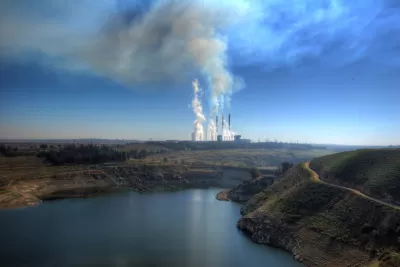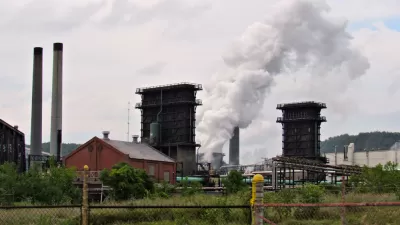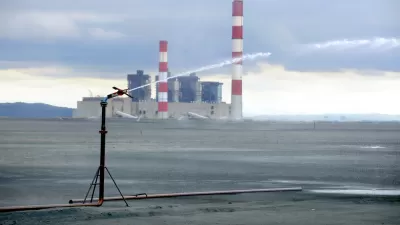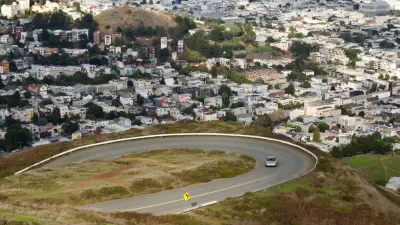A Trump administration decision not to tighten Clean Air Act restrictions on soot pollution will have more consequences for Black Americans.

Set against the context of almost daily reports of the disparate health and economic outcomes of the coronavirus pandemic for Black Americans, in addition to the racial disparities in policing that are inspiring protests all over the country, an April decision by the Trump administration to relax environmental regulations on soot, a deadly form of pollution that affects the health of Black Americans in particular, won't come as a surprise.
Soot is the leading form of environmental health risk in the United States, according to another article providing more analysis of the consequences of that decision by David Roberts:
Research has consistently found that inhaling these particles is incredibly harmful to human physiology, at high concentrations over short periods or low concentrations over extended periods. Particulate pollution is linked to increased asthma, especially among children, along with lung irritation and inflammation, blood clots, heart attacks, weakened immune systems, and, according to a wave of recent research, long-term cognitive impacts (reduced productivity, inability to concentrate, and dementia).
And more on the scientific evidence of the disparate impact of soot on Black people in the United States:
A groundbreaking 2019 study from researchers at the Universities of Minnesota and Washington attempted to quantify both sides of particulate pollution, who produces it and who suffers from it. They found that the consumption producing the pollution was concentrated in majority white communities, while exposure to the pollution was concentrated in minority communities.
The U.S. Environmental Protection Agency under Trump's leadership has decided not to tighten standards of soot pollution as determined by the Clean Air Act, which will lead to "well over 10,000 unnecessary deaths in the US every year," according to Roberts. Moreover, the decision not to regulate soot pollution, given the disparate effects for Black Americans, is "yet another way of devaluing black bodies and black lives, yet another expression of the structural racism that Trump has so effectively flushed to the surface," according to Roberts.
FULL STORY: Trump Administration's Environmental Policies Have Consequences for Black Lives

Planetizen Federal Action Tracker
A weekly monitor of how Trump’s orders and actions are impacting planners and planning in America.

Map: Where Senate Republicans Want to Sell Your Public Lands
For public land advocates, the Senate Republicans’ proposal to sell millions of acres of public land in the West is “the biggest fight of their careers.”

Restaurant Patios Were a Pandemic Win — Why Were They so Hard to Keep?
Social distancing requirements and changes in travel patterns prompted cities to pilot new uses for street and sidewalk space. Then it got complicated.

California Homeless Arrests, Citations Spike After Ruling
An investigation reveals that anti-homeless actions increased up to 500% after Grants Pass v. Johnson — even in cities claiming no policy change.

Albuquerque Route 66 Motels Become Affordable Housing
A $4 million city fund is incentivizing developers to breathe new life into derelict midcentury motels.

DC Area County Eliminates Bus Fares
Montgomery County joins a growing trend of making transit free.
Urban Design for Planners 1: Software Tools
This six-course series explores essential urban design concepts using open source software and equips planners with the tools they need to participate fully in the urban design process.
Planning for Universal Design
Learn the tools for implementing Universal Design in planning regulations.
Heyer Gruel & Associates PA
JM Goldson LLC
Custer County Colorado
City of Camden Redevelopment Agency
City of Astoria
Transportation Research & Education Center (TREC) at Portland State University
Camden Redevelopment Agency
City of Claremont
Municipality of Princeton (NJ)





























